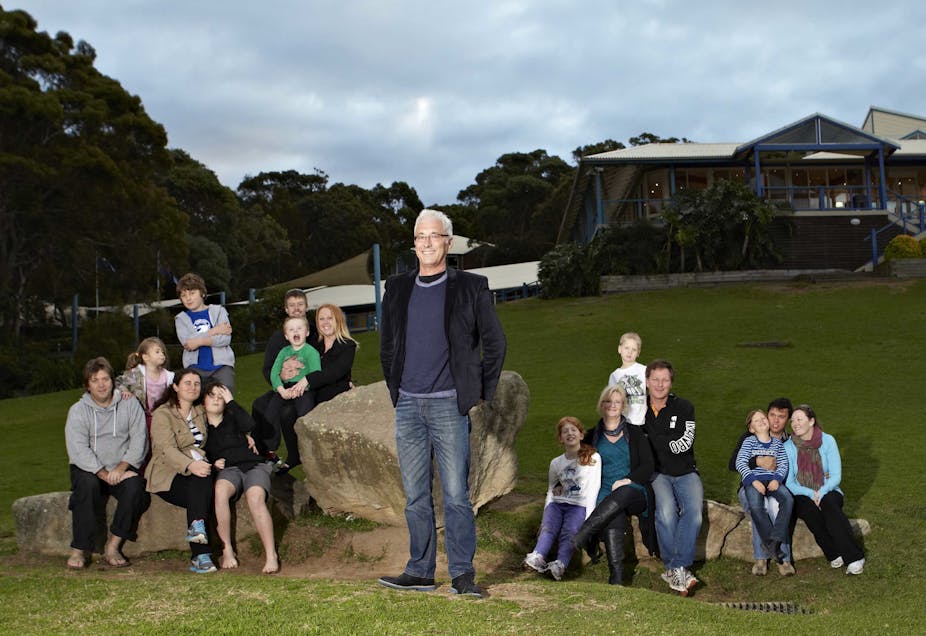The new three-part documentary starting on ABC1 at 8:30 tonight, “Kids on Speed?” is timely given attention deficit hyperactivity disorder is attracting controversy because of growing evidence it’s overdiagnosed.
The show highlights the importance of a multidisciplinary approach (psychology, medicine, and education) for effective intervention and the need for treatments to be based on evidence.
Starting at the wrong end
A recent Australian study found one in five consultations to paediatricians was for attention deficit hyperactivity disorder, with an average diagnostic consultation time of 48 minutes.
That doesn’t seem like enough time to comply with the National Health and Medical Research Council’s new Clinical Practice Points on the Diagnosis, Assessment and Management of ADHD in Children and Adolescents.
The assessment period in “Kids on Speed?” is much longer but, unfortunately, experts here also make their diagnoses before treatment begins. Assessment is essential before any treatment can commence, but does a diagnosis need to happen in the first few weeks? As the show aptly demonstrates, diagnoses change when there’s more information.

Does it matter if kids with extremely challenging behaviours are given a diagnosis of attention deficit hyperactivity disorder, oppositional defiant disorder, or conduct disorder, before they and their parents get help?
In the words of two mothers from the series, they have been on the “medico roundabout” for many years. Why is a label important when diagnoses are based on longer-term observation, vary between practitioners and over time, and treatment can begin after an assessment?
The right option
The behaviours of the children seen in “Kids on Speed?” are extreme and represent a spectrum of conduct problems. Luckily, there are effective, evidence-based interventions for these problems although the first line of treatment (medication or psychological intervention) is often debated.
Both have shown effectiveness in the short and medium term for symptom reduction. And for children with conduct problems like the ones in “Kids on Speed?”, there’s evidence that a group of psychological interventions called parent management training is also effective.
But when a child is given a diagnosis of attention deficit hyperactivity disorder (usually with conduct problems as symptoms), what generally follows is medication (principally psychostimulants) rather than psychological intervention. The drugs are either given as the first line of treatment or as a “trial” to see if they help the child’s behaviour.
While medications can be beneficial in the short term, they can also have harmful side effects, and don’t address potential social deficits or provide skills to manage challenging behaviours.
And there are no medications specifically for the symptoms of oppositional defiant disorder, or conduct disorder (other disorders with conduct problem symptoms).
Challenges for changing behaviour
Appropriately, the psychological interventions in “Kids on Speed?” are based on evidence. The psychologist uses parent-training approaches grounded in social learning theory and attachment theory that have been trialled in many rigorous research studies.
Social learning theory emphasises how parents shape a child’s behaviour through reinforcement. If a child gets a lot of attention for misbehaviour (being noticed through discipline), for instance, but nothing when behaving appropriately (such as playing quietly), then she learns that behaving appropriately isn’t going to get any attention.
Attachment theory suggests parental sensitivity to the child’s needs and the development of the parent-child relationship form important foundations for early (and later) development.
These are the components of successful parent management training interventions such as Triple P, [Parent-Child Interaction Therapy](http://www.pcit.org/](http://www.pcit.org/), and The Incredible Years.
When you combine a psychologist who uses an evidence-based intervention and parents who are willing to go the distance, positive changes in child behaviour are the usual outcome. But maintaining changes are more difficult because old habits return easily.
The experts agree some of the children on the show require medication to reduce their symptoms so therapeutic strategies (both psychological and educative) get a chance to take effect.
But all the children require intensive parent management training intervention; medication alone isn’t enough. Medication reduces symptoms for some but it doesn’t increase social competencies, family functioning, or academic achievement.
A better way
The series aptly demonstrates the challenges parents face when trying to implement evidence-based parenting strategies. As one of the mother’s astutely observes:
Drugs are easy, take a pill and away we go. This is a lot harder because this is retraining us.
It is difficult to get timely services for children with behaviour problems and their parents. Government and non-government services have long waiting times and private practitioners (medical, psychological, or educational) are expensive. Also sadly, evidence-based treatments such as the ones utilised on “Kids on Speed?” are not widely used.
Surveys from the United States of professionals working in child welfare reveal a widespread lack of knowledge and use of evidence-based interventions. And local research suggests the situation is similar in Australia. Parents should expect and demand more.
I have worked as a psychologist with families very much like those in “Kids on Speed?” for over 20 years. This series is an excellent demonstration of real-world challenges for practitioners and families in implementing theory-driven strategies.
We have accumulated a lot of knowledge about effective evidence-based treatments but they are not as widely used as they should be. I admire the families in the show for allowing their difficult journey to be filmed.

